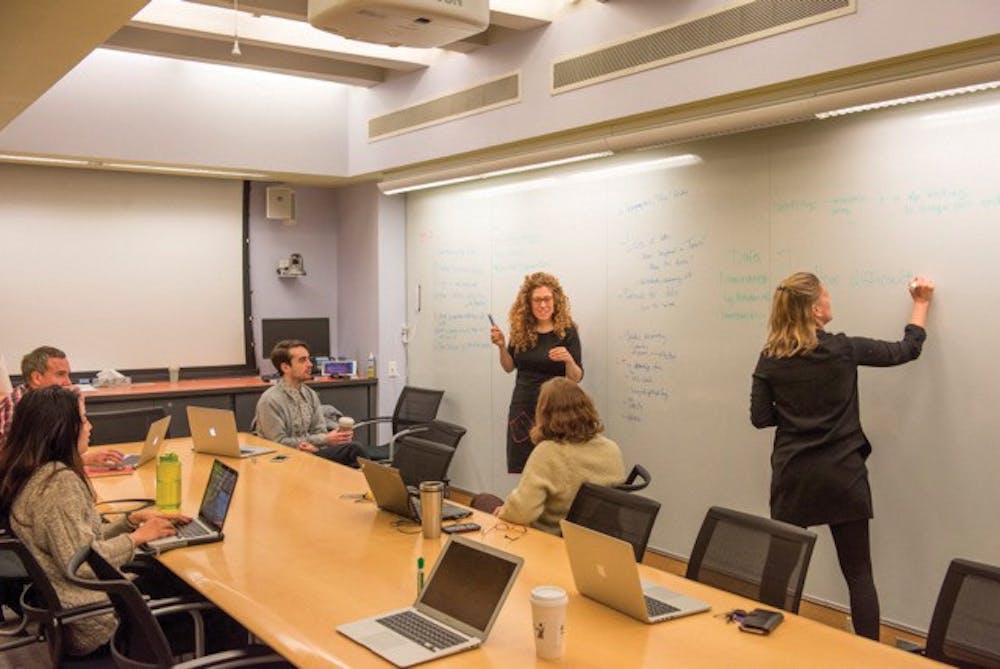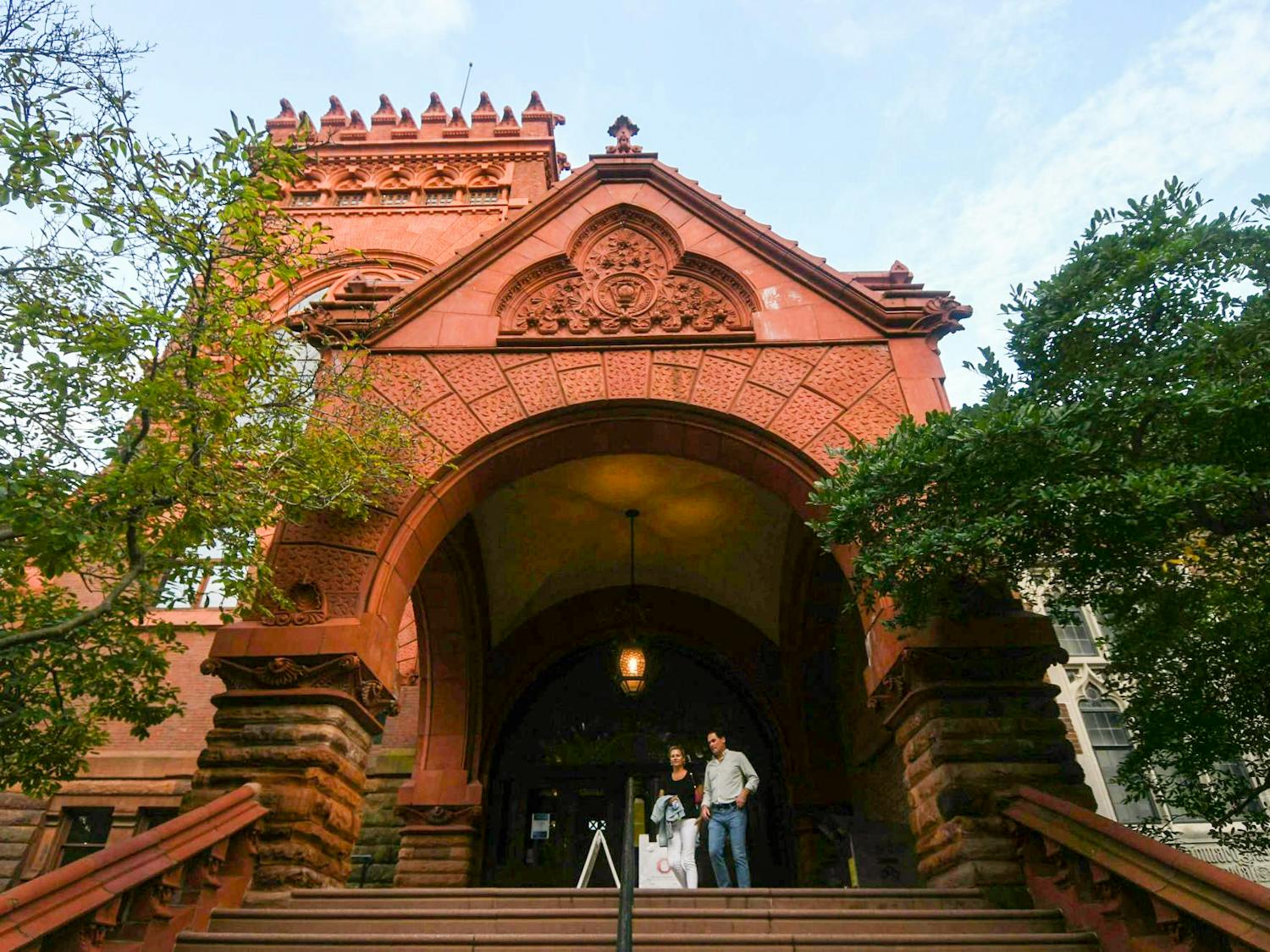Since the successful turnout for DataRefuge’s project DataRescue Philly on Jan. 10, the group is planning on developing more partnerships and hosting other events.
Steven Dolph, a graduate student in the Spanish Department and member of the Penn Program in Environmental Humanities advisory board, said he was overwhelmed by how quickly DataRefuge expanded. He is helping to curate a DataRefuge lexicon to standardize the terminology of data refuge.
Dolph also said media attention, like their feature in WIRED, has brought attention to data vulnerability and broadened the scope of those interested in the effort. Jordan Klepper from “The Daily Show” came to campus on Wednesday to film a segment about the project.
After the inauguration of 1968 Wharton graduate and 45th President Donald Trump, Laurie Allen, assistant director for digital scholarship for Penn libraries, said the “sense of urgency is stronger” to support DataRefuge and similar projects.
Since November, the DataRefuge project has aimed to protect public environmental data and spread awareness about the vulnerability of public access to data. Margaret Janz, scholarly communications and data curation librarian at Van Pelt Library, reported that about 250 people attended their two-day January event. By the end of the event, they had added 3692 URLs to the End of Term Harvest and downloaded 1.5 terabytes of data from federal websites.
Since the inauguration, the Trump administration has essentially issued gag orders on the Department of Agriculture and the Environmental Protection Agency. His officials have also instructed the EPA to remove a webpage about climate change from their website.
Allen acknowledged that the DataRefuge project began in anticipation of this suppression of public data.
“We know the data is going to come down. We know the science is going to be more vulnerable,” Allen said. “This is not a project driven from panic. It is driven by good data and archival practices.”
Theodore Schurr, professor of anthropology and member of the PPEH faculty working group, spoke about how data purging is a consistent practice, seen at the end of both the Reagan and Bush administrations as well. He is concerned that with such a “profoundly anti-science” administration the narrowing of information will only increase with time.
“It is not just an attack on the organizations themselves,” Schurr said. “It’s an attack on being transparent in what their doing.”
On Monday the DataRefuge team hosted a webinar for about 20 people who had reached out about hosting their own DataRescue event. In the month of February, there are events scheduled at Harvard University, University of California at Davis and Massachusetts Institute of Technology, as well in Portland, New York and the San Francisco Bay Area.
Allen added that the DataRefuge project is headed in two directions: building partnerships locally in the Philadelphia area, and with research libraries around the country. The team plans to meet with Philadelphia city officials on Friday.
“I think that there is a general widespread consciousness among citizens that there are lots of different risks that are being increased right now,” Dolph said. “I think people are looking for a way to get engaged.”









